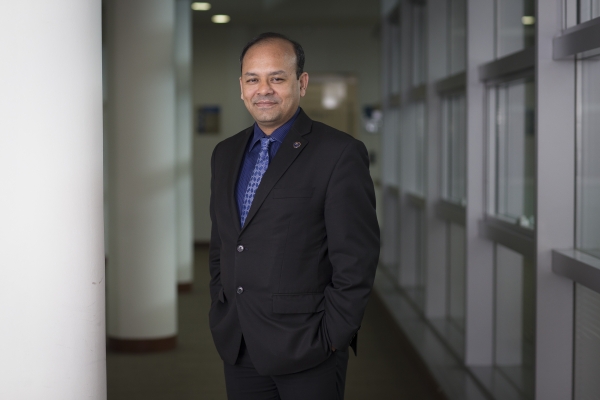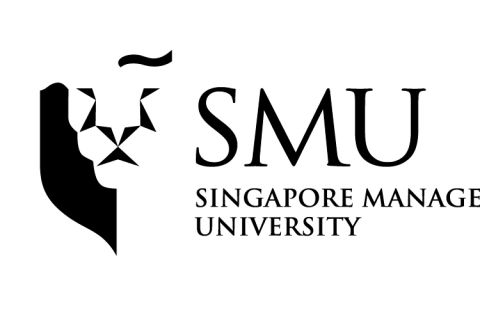
By Jovina Ang
SMU Office of Research & Tech Transfer – What is the state of financial wellness of Singaporean youth?
Speaking to the Office of Research & Tech Transfer, SMU Assistant Professor of Finance (Education) Aurobindo Ghosh told us that this is the primary question that he had wanted an answer to for the past few years.
The last global survey on financial wellness which included Singapore was conducted in 2015 and it was not specifically targeted at Singaporean youth.
With the funding from the Citi Foundation, Professor Ghosh was able to deep dive into the state of financial wellness of youth in the island state comprising university and other tertiary sector students and young working adults.
“Financial wellness is an important aspect of the overall wellness of an individual. It has been shown that individuals with sufficient financial wellness can make better informed economic decisions and judgements compared to the general population. Financial wellness can also alleviate stress, which has skyrocketed since the COVID-19 pandemic,” Professor Ghosh asserted.
He continued: “Financial wellness goes beyond having the requisite financial knowledge. It includes four broad categories: earning, saving, risk appetite, and financial technology (FinTech) and digitalisation. "
“And it is influenced by many confounding factors such as socio-economic, demographic, pedagogical, experiential, psychological, financial and decision factors,” he added.
With the support from his research assistants, the executive committee members of the Citi-Foundation–SMU Financial Literacy Club, and the research administration support of the Citi-Foundation SMU Financial Literacy Programme for Young Adults, and the first ever virtual MyMoney@Campus programme, Professor Ghosh was able to embark on this pioneering survey.
The survey
Other than establishing a benchmark of financial wellness, the survey aimed to identify the required improvements to enhance it.
Financial wellness or, more specifically, Financial Inclusion, Wellness and Resilience (FInWR) was measured using a comprehensive score that is comprised of twelve inter-related sub-categories.
The twelve sub-categories included risk comprehension, insurance, investment, sources of information, consumption, earning, saving, borrowing, digital literacy, FinTech, budgeting and sustainability.
The sample size of the survey was 1,068 youth aged 18 to 30 years of age. The survey was conducted in the period February to April 2021.
An important feature of the survey was the use of a continuous scoring system rather than a discrete scoring system to improve the level of accuracy.
The survey also aimed to democratise financial knowledge by informing the participants of their respective financial wellness score vis-à-vis their peers. It aspired to provide recommendations on how they can improve their overall financial wellness through dissemination of research findings.
The results
The analysis of the FInWR scores showed the university students in Singapore generally have adequate financial wellness although STEM students fared lower.
The survey also showed that young working adults have lower FInWR scores compared to university students.
What is concerning is the high level of debt for a third of the young working adults and their ability to detect financial scams, as well as access to financial services that is hampered by mistrust of financial institutions.
Another interesting finding showed that youth in double income households have lower FInWR scores.
It could be construed that these youth have less parental, or specifically, maternal interaction. Thus, it is possible that they have less financial guidance and appreciation of the financial situation in the household.
Recommendations for improving financial wellness
Based on the insights from the survey, Professor Ghosh offers the following recommendations to improve the financial wellness of Singapore youth:
- Roll out business education to tertiary students. Those majoring in STEM disciplines are recommended to take at least a business course.
- Continuing education in business is a must for young working adults to maintain or improve their financial wellness.
That said, Professor Ghosh told us that the survey has unfurled other questions that he would like answered such as: “Does ubiquitous fintech tools drive young adults to overspend?”; “How can the tertiary curriculum be changed, customised and personalised to improve financial wellbeing of the citizens of the future connected and sustainable global economy?”
Professor Ghosh is anxious to address these questions through delving deeper into the current and the next iteration of the FInWR benchmarking survey.
Back to Research@SMU August 2022 Issue
See More News
Want to see more of SMU Research?
Sign up for Research@SMU e-newslettter to know more about our research and research-related events!
If you would like to remove yourself from all our mailing list, please visit https://eservices.smu.edu.sg/internet/DNC/Default.aspx

